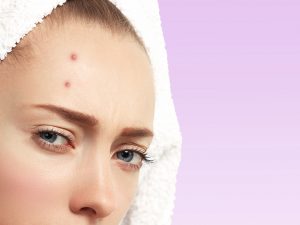What You Need to Know
Acne is a common skin condition that affects millions of people worldwide. It’s not just a problem for teenagers, as many adults also struggle with acne. Unfortunately, there are many misconceptions and myths about acne that can make it difficult to understand the condition and how to treat it effectively. In this blog, we’ll debunk some of the most common acne myths and provide you with accurate information about how to achieve clear, healthy skin.
Myth #1: Acne Is Caused by Dirty Skin
Many people believe that acne is caused by poor hygiene or not washing your face enough. However, acne is actually caused by a combination of factors, including excess oil production, clogged pores, and bacteria. While it’s important to keep your skin clean, over-washing or scrubbing your skin too hard can actually make acne worse by irritating your skin and causing inflammation.
Myth #2: You Can “Outgrow” Acne
While it’s true that acne is more common in teenagers, many people continue to struggle with acne well into adulthood. Hormonal changes, stress, and genetics can all contribute to the development of acne, and it’s not something that you can necessarily “outgrow.” However, with the right treatment and skincare routine, you can manage your acne and prevent it from getting worse.
Myth #3: Tanning or Sun Exposure Can Cure Acne
Many people believe that tanning or sun exposure can help clear up acne. While it’s true that sun exposure can temporarily dry out acne and reduce inflammation, the long-term effects of sun damage can actually make acne worse. Exposure to UV rays can cause skin damage, premature aging, and even increase the risk of skin cancer. If you’re looking to clear up your acne, look for treatments that are specifically formulated to target the root causes of acne, such as excess oil production and inflammation.
Myth #4: You Should Avoid Moisturizer if You Have Acne
Many people believe that moisturizer is too heavy for acne-prone skin and can clog pores, but in reality, moisturizer is essential for keeping your skin hydrated and healthy. Look for oil-free, non-comedogenic moisturizers that are specifically formulated for acne-prone skin. These products are designed to provide hydration without causing breakouts or clogging pores.
Myth #5: Only Prescription Medications Can Effectively Treat Acne
While prescription medications can be helpful for treating severe acne, there are many over-the-counter treatments that can also be effective. Look for products with ingredients like salicylic acid, benzoyl peroxide, or alpha-hydroxy acids, which can help to unclog pores, reduce inflammation, and kill bacteria. However, be cautious about overusing these products, as they can be drying and irritating if used too frequently.
Myth #6: Diet Has No Effect on Acne
While the exact relationship between diet and acne is still not fully understood, there is some evidence to suggest that certain foods may contribute to the development of acne. For example, high-glycemic foods like sugar and processed carbohydrates can cause spikes in insulin, which can trigger the production of excess oil and lead to breakouts. Dairy products and foods high in iodine may also be linked to acne. While diet is not the only factor that contributes to acne, it’s important to pay attention to your diet and see if certain foods may be triggering your breakouts.
Conclusion
In summary, there are many myths and misconceptions about acne that can make it difficult to understand and treat the condition effectively. By understanding the true causes of acne and taking a holistic approach to skincare, you can manage your acne and achieve clear, healthy skin. Remember to keep your skin clean, but avoid over-washing or scrubbing too hard.
It’s also important to remember that everyone’s skin is unique, and what works for one person may not work for another. If you’re struggling with acne, don’t be afraid to seek out professional help from a dermatologist or skincare specialist. They can help you develop a personalized skincare routine that addresses your specific skin concerns and helps you achieve your best possible skin.




